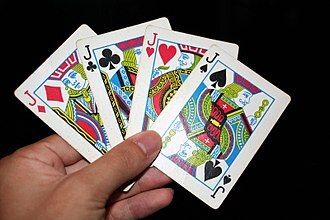David Tickner's Blog, page 15
March 25, 2023
Resilience, Resilient
 The words resilience and resilient have their origins in Latin salire (to leap) and Sanskrit sisarsi or sisrate (to flow, to run, to hurry). These ancient words are believed to have a common but unknown root in Proto-Indo-European (PIE).
The words resilience and resilient have their origins in Latin salire (to leap) and Sanskrit sisarsi or sisrate (to flow, to run, to hurry). These ancient words are believed to have a common but unknown root in Proto-Indo-European (PIE).Latin salire is the source of punctum saliens (the sense of the leaping heart of an embroyo). In the 1670s, this term was translated to English as ‘salient point’—a starting point or jumping off point. The military meaning of salient as a ‘pointing outward’ is from the 1680s.
Latin salire came to English in the 1560s as salient (leaping). Salient, meaning prominent or striking, is from 1840.
The word resilience (the act of rebounding or spring back), from the 1620s, is from Latin resilire (to rebound, recoil), from Latin re- (back) + salire. The scientific use of the word resilience related to the behavior of material returning to an original shape following the release of compression is from the 1670s. Resilience, meaning elasticity, is from 1824. Resilience, meaning the power of recovery, is from 1857.
The word resilient (springing back, returning to the original position), from the 1640s, is from Latin resilientum (inclined to leap or spring back) and resilire.
The word resiliency (resilience; tendency to rebound) is from the 1660s.
The verb ‘to result’, from Latin resultare (to result, to spring forward, rebound) is also related to Latin salire and resilire (e.g., “This discussion could result in a satisfactory outcome”).
Contemporary uses of the words resilience and resilient related to human behavior are from the 19th century. The figurative sense of resilient as persons ‘bouncing back’ from difficulties is from the 1830s. The first research on ‘psychological’ resilience is from the early 1970s.
Resilience and results are related. Could we say that results are the result of resilience!
Reference: Online Etymological Dictionary, https://www.etymonline.com/
Published on March 25, 2023 11:41
March 20, 2023
Shampoo
 The verb shampoo originally meant a massage and comes from the Hindi word champna (to press, to knead the muscles) and Sanskrit capayati (pounds, kneads).
The verb shampoo originally meant a massage and comes from the Hindi word champna (to press, to knead the muscles) and Sanskrit capayati (pounds, kneads).Ancient Sanskrit texts describe boiling sapindus (soapberries) with dried amla (gooseberries) and a selection of other herbs. This mixture was strained to obtain the product used during shampooing to create a phenaka, the Sanskrit word for lather.
The practice of shampooing was brought to England from India by British colonial officials. The verb shampoo, first seen in English in 1762, meant to massage, to rub and percuss the surface of the body to restore tone and vigor.
Shampoo, meaning to lather and wash the hair, is from 1860. By 1954, carpets, upholstery, pets, automobiles, and other things were being shampooed.
The noun shampoo meaning the act or operation of shampooing is from 1838. Shampoo as the soap for shampooing is from 1866.
In brief, shampoo was an activity (“I will shampoo your hair”) long before it was a product (“Could you pick up some shampoo for me while you’re at the store?”).
Reference: Online Etymological Dictionary, https://www.etymonline.com/
Published on March 20, 2023 07:53
March 14, 2023
Jack
 The proper name Jack, first seen in 1218, is from Old French Jacques and Latin Jacobus (Jacob). Jack is usually regarded as a more informal version of John. The Scottish form of John is Jock.
The proper name Jack, first seen in 1218, is from Old French Jacques and Latin Jacobus (Jacob). Jack is usually regarded as a more informal version of John. The Scottish form of John is Jock.From the 14th century, the generic term ‘jack’ was often applied contemptuously to anyone, particularly to lower-class young men. The term knave also referred to young men, particularly to male servants in a royal household or to young men swaggering about and causing trouble.
What about the Jack in a deck of cards? In 16th century decks of cards, the Knave was the card between a Ten and a Queen. However, when holding a hand of such cards, a K on the corner of a card could refer to either a Knave or a King.
In the 1670s, some decks of cards began to include a J for Jack instead of a K for Knave. This variation did not become widespread until 1864 when an American manufacturer of playing cards changed the K for Knave to J for Jack and published countless decks of cards with this new variation. The Knave card disappeared.
Over the centuries, the word ‘jack’ has been used in numerous ways:In the late 14th century, jakke, a generic term, referred to any mechanical device.Jack and Jill, who went up the hill, is from the 15th century.In medieval times, people sometimes saw spooky flickering lights appearing at night over marshy ground. In 1563 scientists called this light ignis fatuus (foolish fire), light now attributed to the combustion of gases from decomposing organic matter. This light was called Jack’s lantern. Jack O’Lantern, from the 1660s, was a night-watchman. The carved face on a Hallowe’en pumpkin was first called a Jack O’Lantern in American English in 1834.Jack-in-the-box, from the 1560s, was the name for a card sharp or a cheat. Other meanings for Jack include a peddler who sells wares from a temporary stall (1690s), an unborn child, a type of gambling game, a hermit crab, a large wooden male screw, the sacrament, and various mechanical devices. Jack-in-the-box, the toy, is from 1702.Jack Sprat, from the 1560s: a small light man, not to be confused with Jack Weight.In the 1570s, a jack referred to the any of the various appliances used by servants.Jack, from the 1600s, referred to a sailor.Jack of all trades, from the 1610s: a person handy at any kind of work.Jack, a small flag flown from a bow of a ship, is from the 1630s; e.g., a Union Jack. A jack is usually smaller than a regular-sized flag.Jack, as a device for pulling off one’s boots, is from the 1670s.Jack, as a portable device for lifting anything heavy, is from 1703. The verb ‘to jack up’ using such a device is from 1860.A jack-knife, from 1711, is a pocket-knife larger than a pen-knife (a knife for sharpening your quill pens). Other meanings include a kind of swimming dive, 1922; a type of tractor-trailer accident, 1966.Jack Frost, is from 1826.Every man jack, from 1812: generic name for any ordinary or working-class man.Jack-in-the pulpit, from 1833, is type of turnip.In the US, jack was first used from the 1880s in reference to an unknown stranger.Jack, as slang for money, is from 1890. The verb ‘to jack up’ the price is from 1904.Jack-hammer, a pneumatic drill, is from 1913.
There are many other obsolete, rare, or rude versions of the word jack.
Note: The is the longer version of this item. A shorter version was posted on Linked In and Facebook.
Reference: Online Etymological Dictionary, https://www.etymonline.com/
https://en.wikipedia.org/wiki/Jack_(playing_card)
Published on March 14, 2023 18:15
March 8, 2023
Fido
 Ever wondered why Fido is such a generic name for a dog?
Ever wondered why Fido is such a generic name for a dog?Fido has its origins in Latin fides (faith) and fidelis (faithful, true, trusty, sincere). The Latin word fido means, “I am faithful.” The word fidelity, meaning faithfulness and devotion, came to English in the early 15th century.
Before he became President, Abraham Lincoln had a dog called Fido that reportedly followed him everywhere. In Springfield, Illinois, where Lincoln lived at the time, the dog and its loyalty were as well known as Lincoln. Perhaps this is what popularized the use of the name Fido.
Calling a dog Fido is like calling a dog Trusty or Faithful. In the medieval period of Western European history, little dogs portrayed in paintings often symbolized loyalty and faithfulness.
I also have to say that there is a part of me trying to imagine a dog who spoke Latin hearing its owner calling, “Fido, Fido… here Fido!” The dog might be thinking, “Why is my owner shouting, ‘I am faithful’?”
The image of the statue of a dog (above) in Borgo San Lorenzo, Italy, is a monument to another dog called Fido. The Wikipedia story of this Fido is quite heartwarming.
https://en.wikipedia.org/wiki/Fido_(dog)
Image: Piazza Dante, Borgo San Lorenzo, Italy: monument to Fido
Reference: Online Etymological Dictionary, https://www.etymonline.com/
https://www.psychologytoday.com/ca/blog/canine-corner/201110/why-are-dogs-so-frequently-called-fido
Published on March 08, 2023 19:12
March 5, 2023
Sarcasm
 Have you ever felt like tearing a strip off someone? Try sarcasm.
Have you ever felt like tearing a strip off someone? Try sarcasm.The word sarcasm has its origins in the Proto-Indo-European (PIE) root twerk. No, not that kind of twerking; PIE twerk means to cut.
PIE twerk is the source of Greek sarx (flesh, a piece of meat) and Greek sarkazein (to strip off the flesh).
Greek sarkasmos and Latin sarcasmus, from Greek sarkazein, both mean a sneer, a taunt, or mockery. The English word sarcasmus meaning a biting taunt or remark appears in English in the 1570s.
The English word sarcasm, from the 1610s, now generally means a form of bitter or scornfully severe humor. Sarcasm has a biting or cutting edge and is often rooted in anger. The word sarcastic is from the 1690s. In contrast, satire is also a form of cutting or biting humor but usually used with a much more humorous tone.
Related words include sarcoma and sarcophagus. By the 1650s, sarcoma meant a fleshy excrescence. By 1804, sarcoma meant a malignant tumor or cancer of the connective tissue.
Greek sarkophagos and Latin sarcophagus both referred to a type of limestone used for making coffins; i.e., the limestone dissolved or ‘ate’ the flesh of the body.
Makes me think twice about the phrase, “tearing a strip off someone.”
Reference: Online Etymological Dictionary, https://www.etymonline.com/
Published on March 05, 2023 21:01
February 23, 2023
Carpenter
 Do you ever wonder about the ‘car’ in carpenter?
Do you ever wonder about the ‘car’ in carpenter?Carpenter has origins in Proto-Indo-European (PIE) kers meaning to run, the source of several ancient words related to wheeled vehicles: Breton karr (chariot); Old Irish and Welsh carr (cart or wagon); and Gaulish karros, the source of Latin carrus (a two-wheeled Celtic war chariot). From Latin carrus we get Anglo-French carre which in the early 14th century became the English word car. (What do cars carry? Among other things they carry cargo, from the Spanish cargar meaning a load or burden which in turn also comes from the Latin carrus).
From PIE kers come Old Celtic carpentom (carriage) and Latin carpentum (wagon or two-wheeled carriage). In Latin, a person who made wagons or carts was called a carpentarius. Such a craftsperson was later known as a cartwright or a wainwright.
What does all this have to do with carpenters and carpentry today? Who knows?!
The Latin word for carpenter was lignarius (also, a housewright, woodworker, joiner), from Latin lignum (wood). The Greek word for carpenter was tekton (craftsman; in particular, a carpenter or woodworker), the origin of English words such as technical, technician, and technology. Some sources suggest that in ancient times the Hebrew word kharash-etsim (craftsman of wood, carpenter) or the related Aramaic word naggara (craftsman) may have also referred to someone who was wise and learned in a religious sense.
In ancient times, Greek tekton appears to have been translated into Latin as carpentarius. Why was tekton not translated as lignarius? I have not yet found an answer to this question.
The Old English word for carpenter was treowwyrtha (a tree wright or tree worker—like shipwright or millwright or wainwright). After the Norman invasion of England in 1066, the Anglo-French word carpenter (from Old North French carpentier), from Latin carpentarius, eventually replaced treowwyrtha. Again, what happened to lignarius?!
In brief, for whatever reasons Latin lignarius was replaced by carpentarius which became the French and later the English words for carpenter. The English word carpenter is first seen in the 12th century as a surname and is first seen meaning woodworker in the early 13th century.
By the way, PIE kers is also the source of the words course and curriculum; i.e., “How often does this course run?” or “Are you running that course next semester?” Speaking of running, PIE kers is also the source of the horse. The similarity of the ‘ours’ in course and the ‘ors’ in horse is not a coincidence—these are ancient remnants of the ‘ers’ in PIE kers.
Image: https://www.wikiart.org/en/carl-larsson/in-the-carpenter-shop-1905
Reference: Online Etymological Dictionary, https://www.etymonline.com/
David’s Wordshop Blog: http://www.davidtickner.ca/blog
www.davidtickner.ca
Published on February 23, 2023 15:32
February 20, 2023
Authentic or Genuine?
 The words authentic and genuine are similar in meaning. Both words carry connotations of truth, reliability, and trustworthiness.
The words authentic and genuine are similar in meaning. Both words carry connotations of truth, reliability, and trustworthiness.The word authentic has its origins in Proto-Indo-European (PIE) sene-(2) (to accomplish, to achieve) and Greek hentes (doer, being). The word authentic is a combination of Greek auto (self) + hentes = authentes; i.e., to act with your own authority, to be a master of yourself.
By the late-14th century, the word autentik, from Greek authentes and authentikos (original, genuine, principal) came to English meaning real and entitled to acceptance as factual. To authenticate, meaning to verify or establish the credibility or authority of something, is from the 1650s. The word authenticity is from 1760. Inauthentic is from 1783.
Something authentic is the real thing; e.g., an authentic Ming vase or an authentic signature on a document. Also, authentic can mean something as close as possible to an original real thing; e.g., a reproduction of the armor of a medieval knight can be authentic (i.e., it is a true and trustworthy representation), but it does not claim to be genuine. It is a copy.
The word genuine, from PIE gene (to beget, to give birth), means something unique from a natural or an innate source; e.g., genuine leather is made only from animal skin. Something genuine is not fake or artificial or a reproduction. A leather bag made by Gucci is a genuine Gucci bag. A counterfeit Gucci bag may be a really good reproduction, but it is not genuine.
In brief, authentic can refer to something original or to a reproduction. However, genuine usually only refers to something unique and original.
How is a person genuine or authentic? A person cannot help but be genuine—each of us is born as a unique person, not a copy of someone else! When someone says, “Just be yourself”, your response might be, “Who else could I be?”
On the other hand, being authentic seems more of a relational category; that is, a person self-consciously chooses to be who they are or who they will be in any given circumstance. Such authenticity is a reflection of what a person is thinking, feeling, perceiving, and believing.
In brief, the word genuine refers to a person’s honest and sincere ways of relating to other people and to what others may see in that person. The word authentic refers to a person’s ways of relating to themself, a way of being ‘true to themself’, so to speak.
The concept of ‘authentic assessment’ in education and training means the assessment of a learner’s mastery of the application of knowledge and skill in ‘real world’ situations or as close as possible to ‘real world’ (i.e., authentic) situations; for example, assessing learners in an actual workplace-related practicum, not in a classroom or lab.
Reference: Online Etymological Dictionary, https://www.etymonline.com/
Published on February 20, 2023 19:05
February 16, 2023
Cosmetologist
 Cosmetologist. What is a cosmetologist: someone who studies the cosmos? Do you know any cosmetologists? Do you own any cosmetics? What is the connection between the cosmos, cosmetologists, and cosmetics?
Cosmetologist. What is a cosmetologist: someone who studies the cosmos? Do you know any cosmetologists? Do you own any cosmetics? What is the connection between the cosmos, cosmetologists, and cosmetics?In Greek mythology, before creation, the universe was known as khaos (chaos), from Greek khnwos (abyss, that which gapes wide open, that which is vast and empty) and the Proto-Indo-European (PIE) root ghieh (to yawn, gape, to be wide open). By the way, khaos is also the origin of the word gas.
After creation, the universe was known as the kosmos (the ordered universe). Kosmos (order, fullness) is the opposite of khaos (disorder, emptiness).
Greek kosmos is the origin of kosmein which originally meant to organize and arrange troops for battle. The word kosmein also meant to adorn, equip, and dress women. The word kosmetikos meant skill in adornment and arrangement.
As you might expect, the word cosmetic comes from kosmetikos. The word cosmetic appears in English around 1600, meaning the art of beatifying and the art of anointing or decorating the human body. The word cosmetic, meaning a preparation for beautifying or for rendering the skin soft and pure or for improving the complexion and hair, is from the 1640s.
Cosmetology, the art and practice of beauty culture, is first seen in 1855 from French cosmétologie. The word cosmetologist (an expert in cosmetics) is from 1925. The earlier word was cosmetician (1914).
So, in brief, could we say, ahem, drum roll please, that a cosmetologist is a person who uses cosmetics to bring order to the chaos of a face?
Reference: Online Etymological Dictionary, https://www.etymonline.com/
Published on February 16, 2023 15:43
February 12, 2023
Confidential
 I’d like to be able to share the origins of this word, but I can’t. They are private. Hmmm… Maybe we can just keep these origins between the two of us?
I’d like to be able to share the origins of this word, but I can’t. They are private. Hmmm… Maybe we can just keep these origins between the two of us?The adjective confidential, meaning the confiding of a private intimacy, is first seen in English in 1759. Confidential, in the sense of intended to be treated as private, is from 1773. The sense of ‘enjoying the confidence of another’ is from 1805. Confidentiality, the quality of being confidential, is from 1830.
The word confidence appears in English around 1400 meaning the assurance or belief in the good will or veracity of another. The word confidence came to English from Old French confidence and Latin confidentia, confidentem (firmly trusting, bold), and confidere.
By the mid-1400s, confidence meant self-assurance, a reliance on one’s own powers, resources, or circumstances. Confidence, meaning the certainty or sureness of a proposition with regard to facts, is from the 1550s. Confidence, meaning a secret or private communication, is from the 1590s. The mid-19th century terms ‘con game’ or ‘con artist’ related to swindling (i.e., to ‘con’ someone) come from the notion of a false trustworthiness (e.g., a ‘confidence’ game).
The word confidant, from the 1610s, a person entrusted with private affairs, is from Italian confidente (a trusty friend) and from Latin confidere.
Latin confidere (to have full trust or reliance) comprises the prefix com- (with, together) + fidere (to trust), from the Proto-Indo-European (PIE) root bheidh (to trust, confide, persuade).
PIE bheidh is also the source of words such as abide, faith, federal, fiancée, infidel, and many other words relating to trust or lack of trust.
Confidential and confidentiality are not just words about secrets or private matters but, more importantly, they are words about trusting, about being loyal to one another.
Reference: Online Etymological Dictionary, https://www.etymonline.com/
Published on February 12, 2023 22:01
February 6, 2023
Quintessence
 Quintessence is one of my favorite words. I like its origins and its history. I just like the sound of the word.
Quintessence is one of my favorite words. I like its origins and its history. I just like the sound of the word.The word quintessence combines the words quint and essence. Quint comes from Latin quinta (five); e.g., quintuplets.
The word essence has its origins in the Proto-Indo-European (PIE) root es (to be), Greek ousia (being, essence), and Latin esse (to be) and essentia (being, essence). The word essence comes almost unchanged in meaning and spelling to English in the late 14th century.
Essence can be defined as that which something has to have to make it what it fundamentally is and without which it loses its identity. When we say that something is essential, it usually means that we cannot do without it.
In ancient European philosophy and medieval alchemy, all things were perceived as being comprised of various combinations of four basic elements: air, water, fire, earth.
People who studied such things felt that there was some mysterious unifying force or energy which balanced and held these four elements together in relationship to one another. This force or energy was known as the quinta essentia (the quintessence); “the fifth and highest element in ancient and medieval philosophy that permeates all nature” (Merriam-Webster).
In the early 15th century, the word quintessence came to English meaning the essence or the heart of something; also, meaning something which is of the utmost importance. The word quintessential appears around 1600.
Consider: When we say, “Take five”, we not only mean, “Take a break”, but perhaps, “Take some time to get in touch with yourself, take some time to get reconnected to who you are.”
Similarly, at times of success or celebration when we exclaim, “Gimme five!”, perhaps we also imply, “Give me your energy, your creativity, your winning spirit!”
Reference: Online Etymological Dictionary, https://www.etymonline.com/
Published on February 06, 2023 09:34



